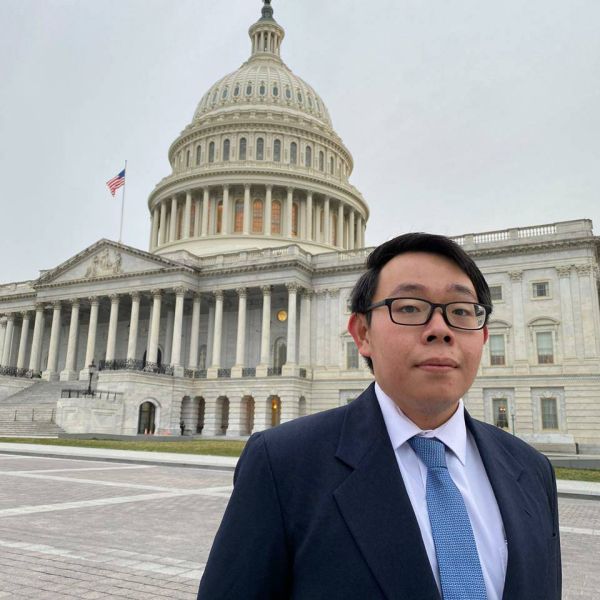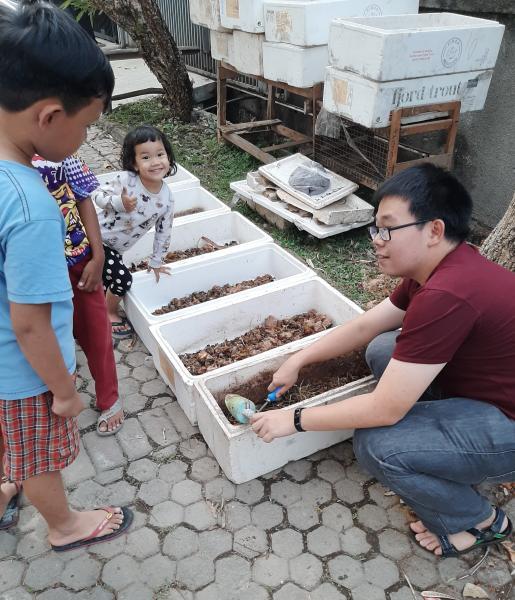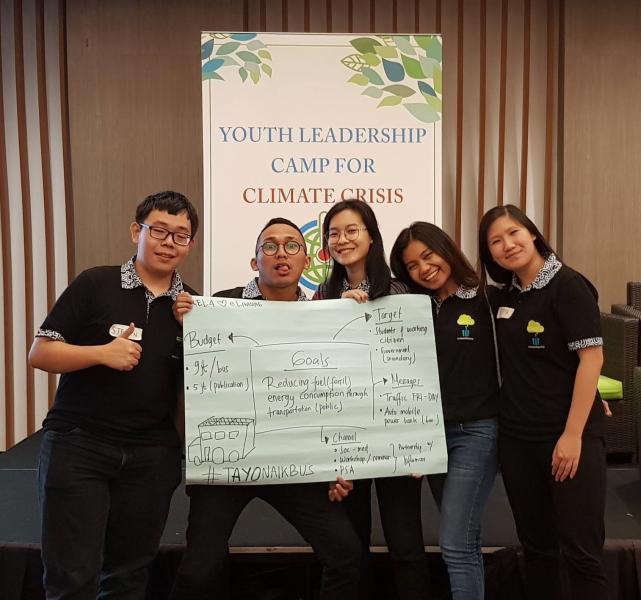Image

Cimahi, Indonesia
Age: 21
Steven is a waste management enthusiast who empowers waste pickers and youth through environmental education and an organic waste management start-up.
How are you using education to build more sustainable and equitable communities?
My environmental education approach has always been driven by community needs. Through eLarvae, I educate the waste pickers community about how to recycle organic waste using Black Soldier Fly Larvae (BSFL) waste management. Waste pickers, in the status quo, don’t want to collect and recycle organic waste because it is worthless, as compared to inorganic waste. I also use an economic approach through Baramoeda Berbagi, a program to educate local women in Bandung on how to recycle patchwork into reusable masks that can be sold.
Additionally, I use a partnership approach to ensure my environmental education initiatives are inclusive. eLarvae has been recognized and promoted by Tanoto Foundation and as a result of that recognition, I have had the chance to educate 2,000 young people in Indonesia, Thailand, and the USA about organic waste management. Also, Baramoeda’s partnership with Pertamina Foundation has raised $5,000 for organic farming and a postharvest product development project in Ciburial Village in Indonesia.

On February 21st, 2005, almost 150 people from my hometown, Cimahi, died from a waste landslide from Leuwigajah Landfill. In the same year, I got pneumonia from air pollution, which is worsened by waste burning activities. Since that incident, I decided that I needed to do something to develop sustainable and inclusive waste management. I decided to focus my high school studies on science and entered as a biology major at the Bandung Institute of Technology. In 2019, my co-founder and I decided to establish eLarvae after seeing waste pickers refuse to collect organic waste. Later that year, four of my friends and I decided to join the Youth Leadership Camp for Climate Crisis and established Baramoeda. My inner circle in eLarvae and Baramoeda has helped me to grow and increase my impact in environmental education, especially in waste management initiatives.
What advice would you give to the next generation of leaders?
You cannot neglect or leave behind the environment, whoever you are or whatever you are doing, right now or in the future. We need to realize that we cannot live without environmental sustainability, but Mother Earth herself can live without our interventions. Past generations have failed to take the responsibility to become good citizens of Earth. If you postpone taking the lead and taking action for the environment, I am afraid that further generations will barely survive on Earth and humanity may cease to exist.
The fight to protect the environment will never be easy. There will be times when you decide to give up because no one hears or supports you. If that happens, find a community and an inner circle that has the same concerns as you. We live on the same Earth, so this is our communal responsibility to save our environment.

I have been privileged to live around ecologically-mindful people in recent years. Not everyone my age has the same access to higher education, supportive communities, and international exposure. I’ve seen with my own eyes that I am not alone in fighting for the environment. I’ve travelled to Thailand and the USA to see that people in other countries are also struggling to fight for the environment. My inner circle is stronger than ever in terms of ecological mindfulness. These things convince me that in the future there will be people to continue my generation’s struggle for the environment.
Furthermore, I do not want people in this and the next generation to feel the consequences of our unsustainable actions before they realize that they need to protect the Earth as the place where we live. If I stop this work, it is possible that future ecological disasters could be more severe than before.
If you could be any animal or plant, what would you be and why?
I want to be a Black Soldier Fly (BSF) because of the unseen honorable actions that this species does for the Earth. When it is still a larvae, BSF will eat virtually any organic material because as an adult they can’t eat at all. That is why BSF is becoming widely used as a primary bioconversion agent. Furthermore, BSF is a social creature from larvae until adulthood. The parallel here is that our fight to save the environment is not an individual strife, but a collective strife. Finally, BSF solves environmental problems that seem to be dirty jobs, but are not dirty at all. Waste has been perceived as something disgusting among humans, and even among other animals. But if no one solves the waste problem, there will be no decomposition and as a result produce more greenhouse gas emissions from organic waste.